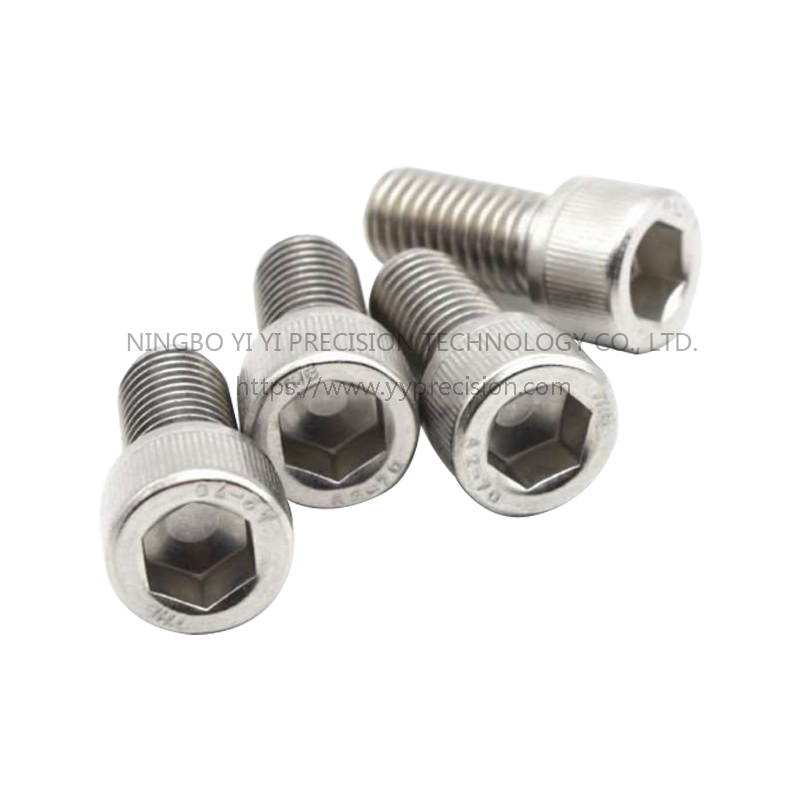Stainless Steel Crank Shaft
Material:Shaft

The stainless steel screws are known for their excellent corrosion resistance due to the presence of chromium and other alloying elements. The corrosion resistance of stainless steel screws is attributed to the formation of a passive oxide layer on the surface of the metal, which acts as a barrier against corrosive agents.
Alloy Composition: The stainless steel screws are made from various grades of stainless steel, each with a different composition of alloying elements. The most common alloying element is chromium, which forms a thin, self-repairing oxide layer when exposed to oxygen. This layer protects the underlying metal from further corrosion.
Chromium Content: The higher the chromium content in the stainless steel alloy, the better the corrosion resistance. For example, austenitic stainless steel, such as 304 and 316 grades, contains a significant amount of chromium, making them highly resistant to corrosion in a wide range of environments.
Passivation: Stainless steel screws are often passivated, a process that enhances the formation of the protective oxide layer. Passivation involves treating the stainless steel surface with an acid solution to remove any contaminants and promote the growth of the oxide layer.
Environment: The type of environment in which the stainless steel screws are used plays a crucial role in their corrosion resistance. Stainless steel is highly resistant to atmospheric corrosion, making it suitable for outdoor applications. However, certain environments, such as marine or highly acidic environments, can still pose challenges to stainless steel's corrosion resistance.
pH Levels: Stainless steel's corrosion resistance can vary with pH levels. For instance, acidic environments can lead to localized corrosion, such as pitting corrosion. In contrast, higher pH levels (alkaline environments) generally support better corrosion resistance.
Temperature: Elevated temperatures can affect the corrosion resistance of stainless steel. The stainless steel grades maintain their corrosion resistance even at high temperatures, while others may experience reduced performance.
Exposure to Chlorides: Chloride ions, commonly found in saltwater and some industrial environments, can compromise the corrosion resistance of stainless steel. The stainless steel, which contains molybdenum, offer improved resistance to chloride-induced corrosion.
Surface Finish: The surface finish of stainless steel screws can impact their corrosion resistance. A smooth finish is generally more resistant to corrosion compared to a rough surface that can trap contaminants.
STAINLESS STEEL SCREWS
Stainless Steel Screws,304 Stainless Steel Hexagon Socket Head/ Cup Head Hexagon Socket Screws Hexagon Socket Stainless Steel Screws,Including Cylindrical Head Hexagon Socket Stainless Steel Screws,Pan Head/ Flat Head Hexagon Socket Stainless Steel Screws(Also Called Stainless Steel Round Cup/ Flat Cup Screws)
Material: SUS304 (1.4301)
Main Specifications:M4M5M6, Etc. (All Can Be Customized)